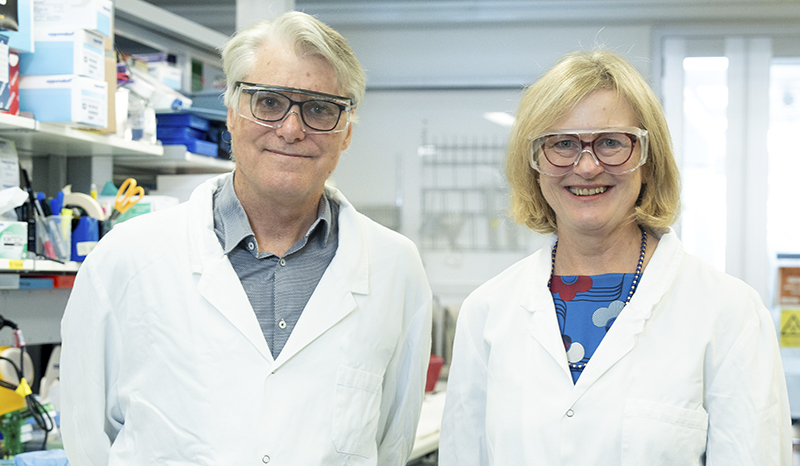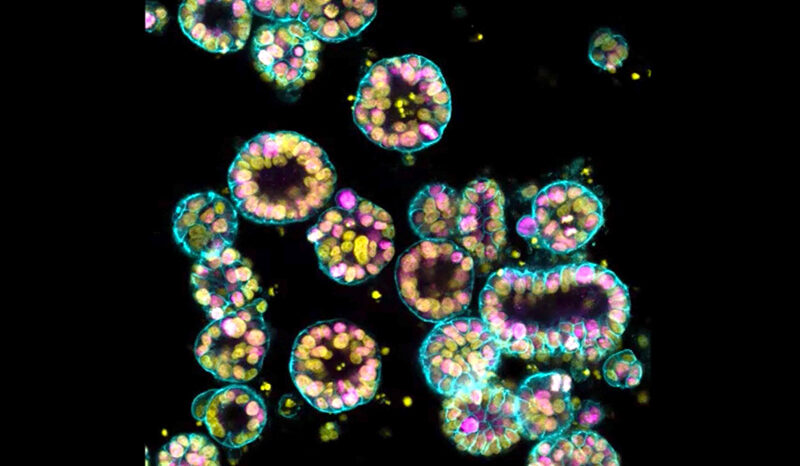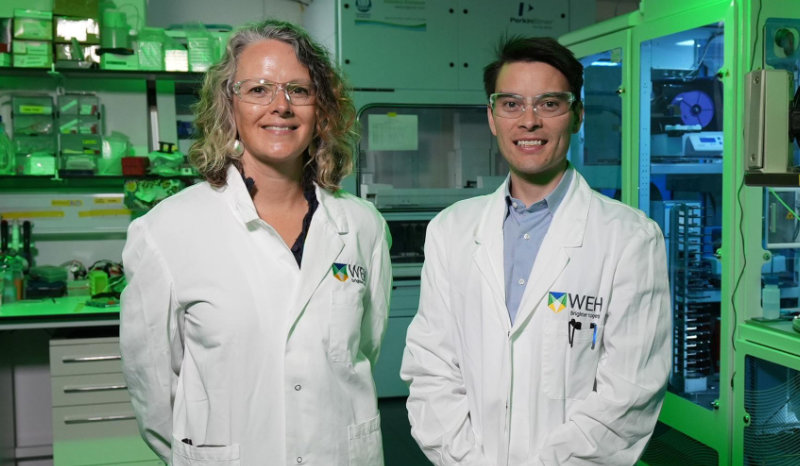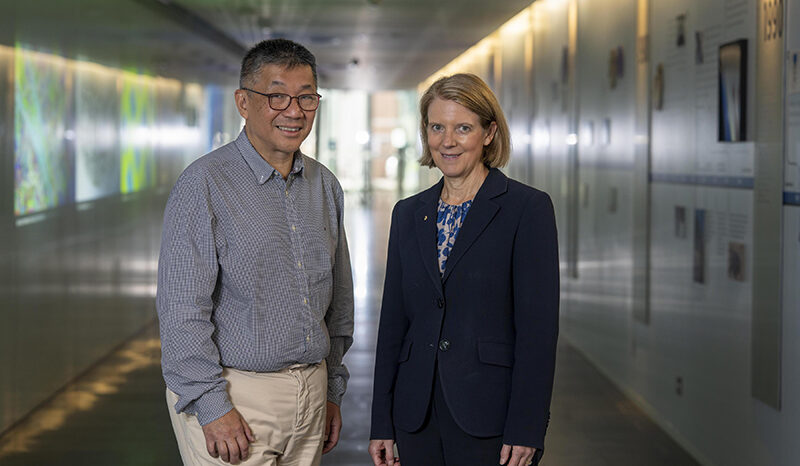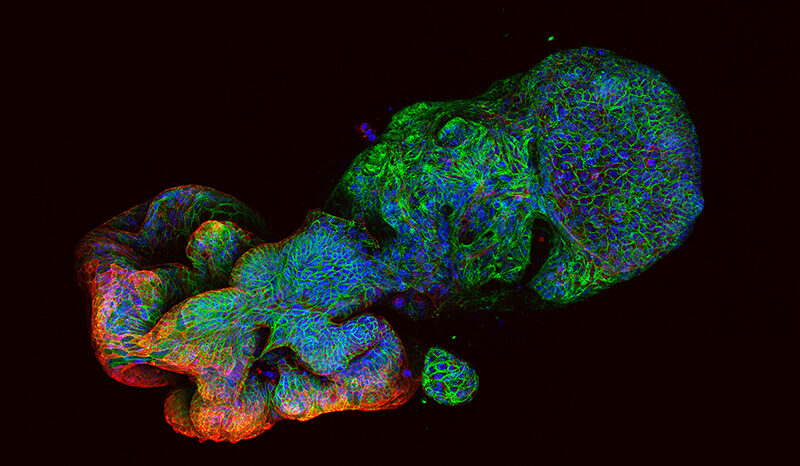Jo Douglass:
I’m a specialist physician and I work in allergic and respiratory disease, which is endlessly fascinating and such an underappreciated area of medicine. I am also the Director of Research at the Royal Melbourne Hospital.
Diseases of the immune system are so common. Overall, one-in-five people experience an allergic disease and one-in-ten have an autoimmune disease such as rheumatoid arthritis or SLE (lupus). These diseases can cost people their health and in some cases can even kill.
I’ve been collaborating with the WEHI team for over a decade. I used to think WEHI was the most daunting place, where only absolutely brilliant, fabulous scientists work. The fact that they wanted to work with
me was terrifying and exciting by equal measure!
When I’m treating patients, I often don’t have a good way of determining which drug will be most effective. While patients often present with similar symptoms, I know they can respond differently to treatments, so it can be a journey until we get them onto the right medication.



